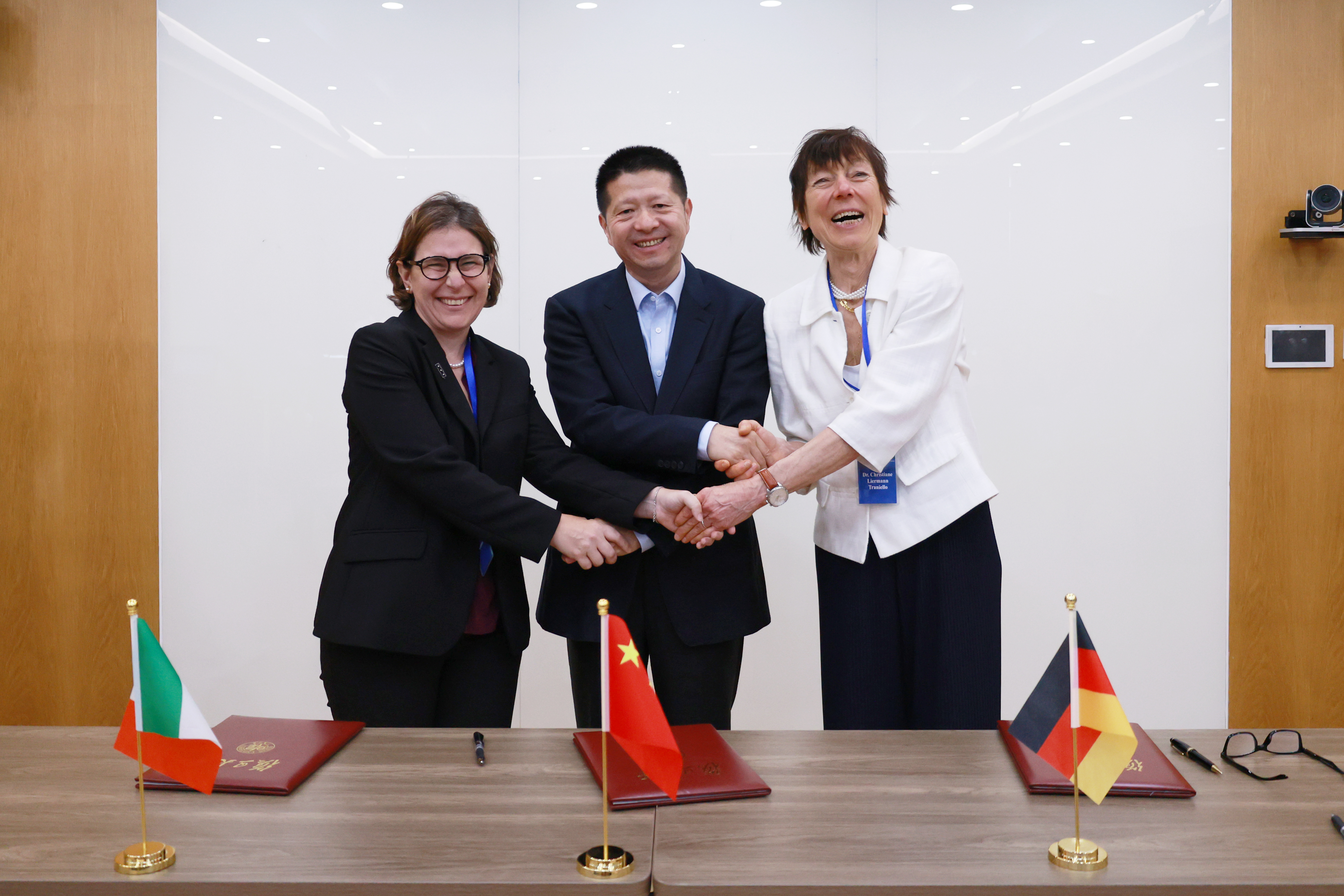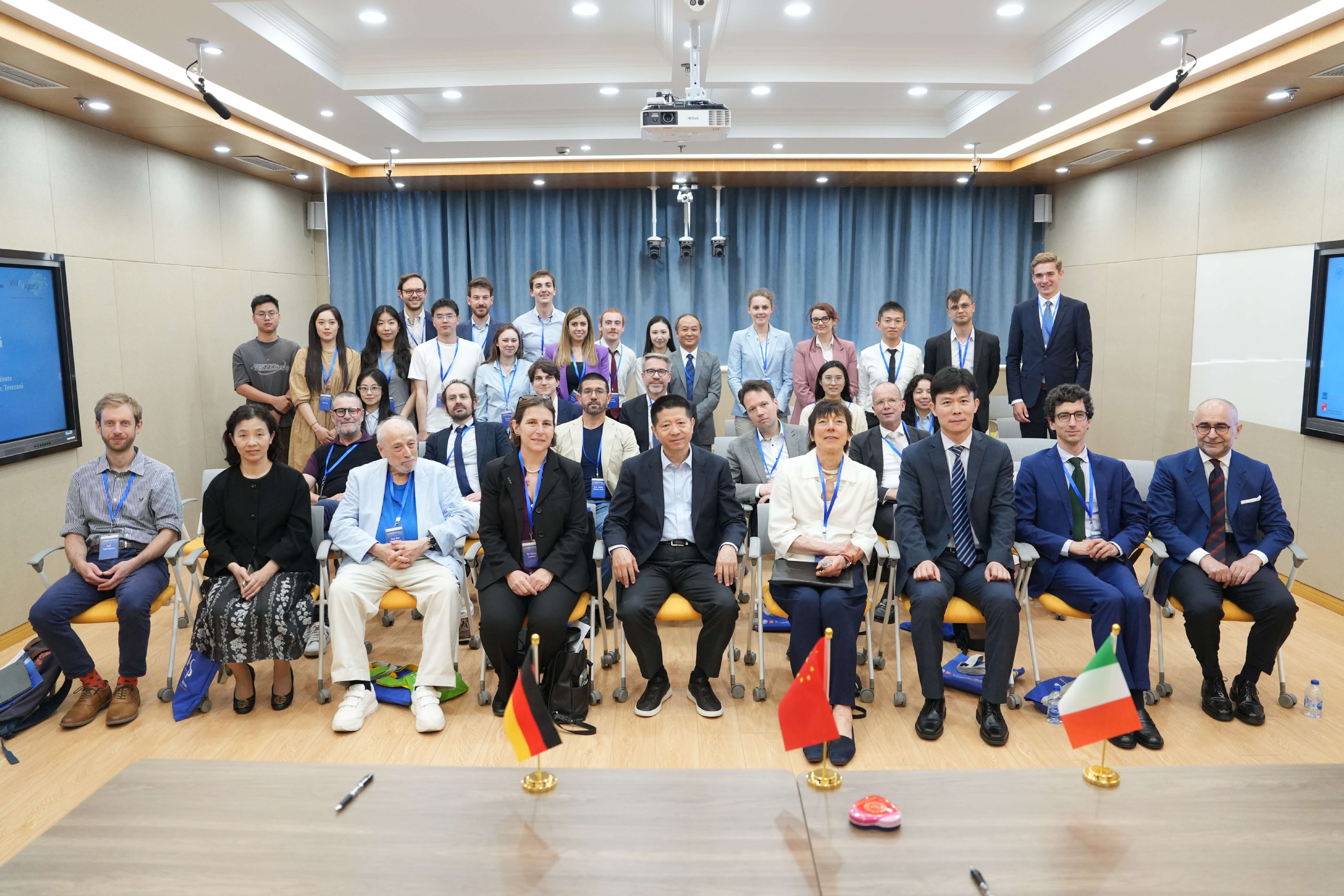
On the occasion of the 50th anniversary of diplomatic relations between China and the European Union and the 120th anniversary of Fudan University, a Memorandum of Understanding (MoU) was signed on the afternoon of May 26 by Fudan University, the German–Italian Centre for European Dialogue, and the Treccani Institute.

Xin Qiu, Chairman of the University Council at Fudan University; Christiane Traniello, General- Secretary of the German–Italian Centre; and Mr. Massimo Bray, General Director of the Treccani Institute, signed the MoU. The Treccani Institute was represented by Professor Marta Leonori, Head of Management Area. The signing ceremony was hosted by Professor Yijia Jing, Dean of the Institute for Global Public Policy (IGPP) at Fudan University.
According to the MoU, the three parties will engage in in-depth cooperation in the fields of research and culture, with IGPP serving as the primary coordinating unit on behalf of Fudan University. The cooperation will include: jointly organizing innovative research and cultural activities; promoting the participation of all three parties in international research and cultural projects; hosting academic conferences, workshops, summer schools, and winter camps; strengthening collaboration on joint publications, particularly in the development and application of digital platforms; and advancing language learning and cultural exchange in Chinese, German, and Italian.

Chairman Qiu congratulated the signing and noted that Fudan University is among the earliest institutions in China to engage in research on Europe and global governance. The university has established several platforms—including IGPP—to advance its vision of becoming a key global hub for openness and innovation. These efforts aim to foster deeper cultural understanding and strengthen connections between China and Europe, particularly between China and Germany, and China and Italy.
Secretary Traniello emphasized that the signing of this MoU reflects the shared pursuit of the three parties to foster understanding. She noted that “understanding” is at the heart of cultural diplomacy—it transcends interests and gains, represents a precious human trait that sets us apart from animals, and is also one of the most difficult disciplines to master.
This year marks the centennial of the Treccani Institute. Professor Leonori brought two precious books as gifts: an annual chronicle documenting the Institute’s century-long journey and a selected volume of Devisement dou Monde. She noted that Devisement dou Monde reflects Marco Polo’s profound observations on the countries and peoples he encountered—a spirit of intellectual curiosity rooted in history yet forward-looking, which continues to inspire and underpin this meaningful collaboration.
Founded in 1986, the Germany–Italy European Dialogue Centre aims to strengthen bilateral relations from a European perspective. It was jointly established by the German and Italian governments and is overseen by Italy’s Ministry of Foreign Affairs and International Cooperation and Germany’s Federal Ministry of Education and Research.
Founded in 1925, the Treccani Institute is regarded as a symbol of Italian culture and intellect. Often praised as the “guardian of Italian culture,” the institute is renowned for compiling the world-famous Encyclopedia Italiana, and has exerted profound influence on the global academic and cultural communities.




